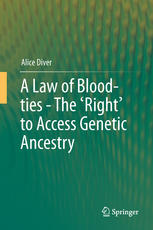

Most ebook files are in PDF format, so you can easily read them using various software such as Foxit Reader or directly on the Google Chrome browser.
Some ebook files are released by publishers in other formats such as .awz, .mobi, .epub, .fb2, etc. You may need to install specific software to read these formats on mobile/PC, such as Calibre.
Please read the tutorial at this link: https://ebookbell.com/faq
We offer FREE conversion to the popular formats you request; however, this may take some time. Therefore, right after payment, please email us, and we will try to provide the service as quickly as possible.
For some exceptional file formats or broken links (if any), please refrain from opening any disputes. Instead, email us first, and we will try to assist within a maximum of 6 hours.
EbookBell Team

5.0
88 reviewsThis text collates and examines the jurisprudence that currently exists in respect of blood-tied genetic connection, arguing that the right to identity often rests upon the ability to identify biological ancestors, which in turn requires an absence of adult-centric veto norms. It looks firstly to the nature and purpose of the blood-tie as a unique item of birthright heritage, whose socio-cultural value perhaps lies mainly in preventing, or perhaps engendering, a feared or revered sense of ‘otherness.’ It then traces the evolution of the various policies on ‘telling’ and accessing truth, tying these to the diverse body of psychological theories on the need for unbroken attachments and the harms of being origin deprived. The ‘law’ of the blood-tie comprises of several overlapping and sometimes conflicting strands: the international law provisions and UNCRC Country Reports on the child’s right to identity, recent Strasbourg case law, and domestic case law from a number of jurisdictions on issues such as legal parentage, vetoes on post-adoption contact, court-delegated decision-making, overturned placements and the best interests of the relinquished child. The text also suggests a means of preventing the discriminatory effects of denied ancestry, calling upon domestic jurists, legislators, policy-makers and parents to be mindful of the long-term effects of genetic ‘kinlessness’ upon origin deprived persons, especially where they have been tasked with protecting this vulnerable section of the population.